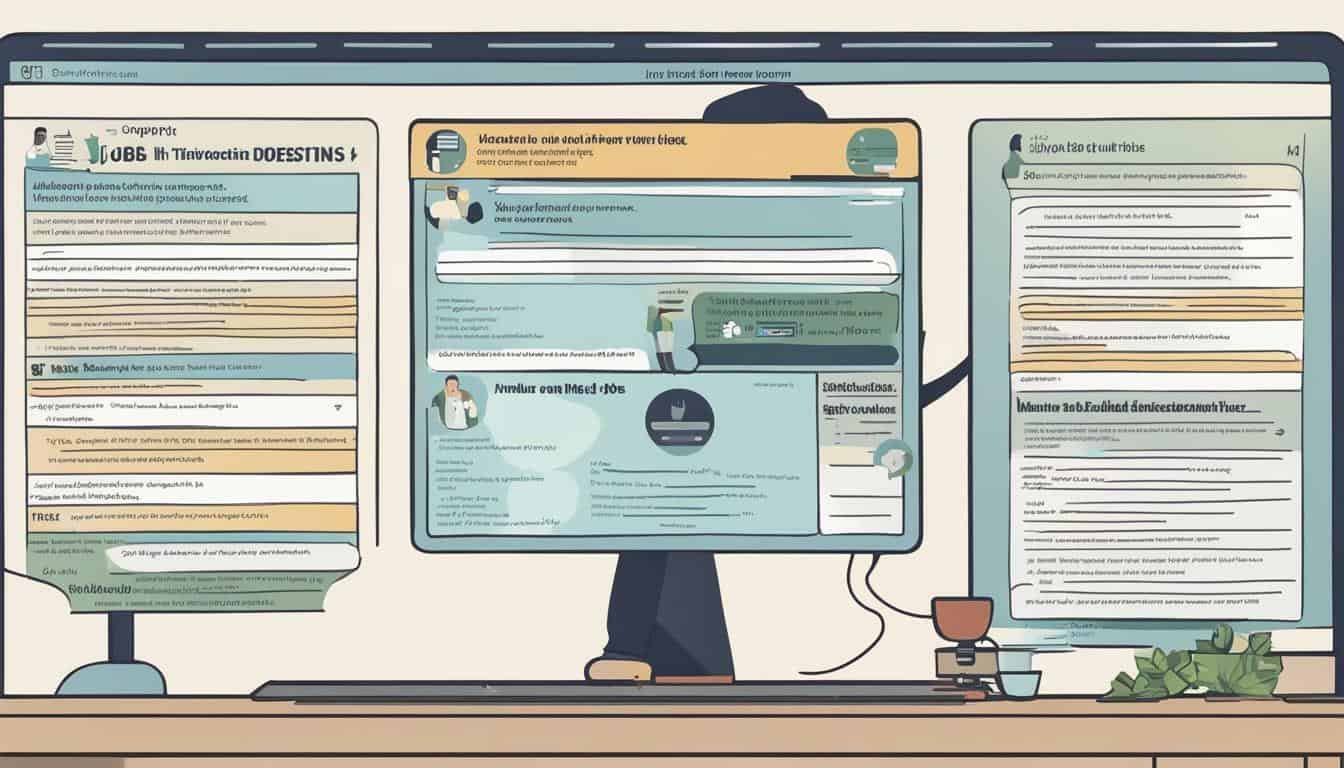As we scour the ever-evolving job market landscape, a puzzling question emerges: are remote jobs disappearing? Recent LinkedIn data resonates with the growing concerns among remote job seekers. It reveals a notable decline in remote job postings, stirring up conversations on the future of remote work and remote work trends. The pandemic has certainly accelerated the adoption of remote work, but as businesses start to reopen, the question of “are remote jobs disappearing” becomes even more pressing. Employers are grappling with the decision to bring workers back to the office or continue with remote arrangements. Despite the uncertainty, many experts believe that remote work is here to stay, but it may look different than it has during the last year.
Our investigation takes a deep dive into the world of remote employment, examining the seismic shifts in remote work opportunities and how the pandemic’s push towards home offices is balancing out. While the appetite for remote positions remains high, the reality on the ground morphs, raising the competition bar for these coveted roles.
The Current Landscape of Remote Work Opportunities
When we examine the impact of COVID-19 on remote jobs, it’s clear that the pandemic has fundamentally shifted the paradigm for many working professionals. Our current environment shows that remote jobs have not only persisted but evolved, with many organizations recalibrating their structures to adapt to this change in the workforce.
Let’s look at some compelling remote work statistics: A recent study highlights that 12.7% of all full-time employees now operate remotely, while a significant 28.2% participate in a hybrid model—a testament to the enduring change brought about by the pandemic. The forecast for remote work post-pandemic looks optimistic, too, with Upwork predicting that by 2025 around 22% of the American workforce will be working remotely, which equates to more than 32.6 million people.
Furthermore, nearly all surveyed workers expressed a preference for remote work, with a staggering 98% favoring the flexibility it provides at least part-time. On the corporate side, an impressive 93% of employers have shown support for remote job interviews, indicating a significant digital transformation in recruitment processes.
But which industries are leading the charge? Let’s take a closer look at where remote opportunities are most prolific:
| Industry | Common Remote Roles (2022) | Approximate Percentage of Remote Jobs |
|---|---|---|
| Computer & IT | Software Developer, IT Project Manager | 35% |
| Marketing | Digital Marketer, SEO Specialist | 25% |
| Finance | Accountant, Financial Analyst | 20% |
Among the various roles, accountant positions, executive assistant openings, and customer service representative spots were notably prominent in remote job postings. Remarkably, 16% of companies have gone completely remote, showcasing a radical departure from pre-pandemic norms.
We see a concurrence between what the workforce desires and what employers are beginning to institutionalize—a greater acceptance and integration of remote work into their daily business operations. As we continue to navigate these changes, one thing is certain: remote work has carved out a significant presence in the post-pandemic job market—and it’s here to stay.
Adapting to the New Norm: The Evolution of Remote Work
As we navigate beyond the upheaval caused by the pandemic, the remote work market continues to exhibit robust growth. In our analysis, we’ve discovered that the prime demographic of remote employees falls within the 24 to 35 age bracket, with educational attainment often serving as a gateway to these flexible work arrangements. It’s noteworthy how the scales tip in favor of men when it comes to who’s working remotely on a full-time basis, suggesting that remote work opportunities still have room to be more inclusive. Moreover, on average, remote workers have a financial edge, with an estimated $19,000 more in annual earnings than onsite staff. Hybrid workers top the income charts, clocking in around $80,000 per year on average, underscoring the financial perks of adopting workplace flexibility.
The shift toward remote work post-pandemic isn’t a mere trend—it’s a powerful sentiment that’s reshaping employer-employee dynamics. A general consensus among professionals highlights that 57% would start job hunting if their remote work privileges were retracted. An even larger group, at 65%, would prefer the option to work from the tranquility of their home full-time. These numbers don’t just showcase preferences; they spell out clear directives for companies aiming to retain top-tier talent. However, the transition isn’t without its challenges, as managing remote teams and ensuring efficiency can be more complex from afar. Despite these challenges, the long-term cost savings for employers and the potential for creating more inclusive job markets for marginalized communities spotlight the enduring appeal of remote work.
Engaging with the future of the remote work growth, we’re prompted to consider the longevity and evolution of these work models. Current indicators hint at a future where the fabric of professional life is interwoven with flexible hybrid models. Our projections align with a paradigm wherein 20% to 30% of the workforce might be operating fully remote, with the remainder acclimating to mixed schedules. As we analyze these shifts and preferences, it’s clear that our collective workplace is undergoing a profound metamorphosis—one that promises to redefine how and where we work for generations to come.




0 Comments